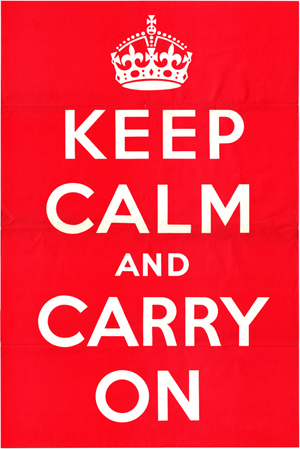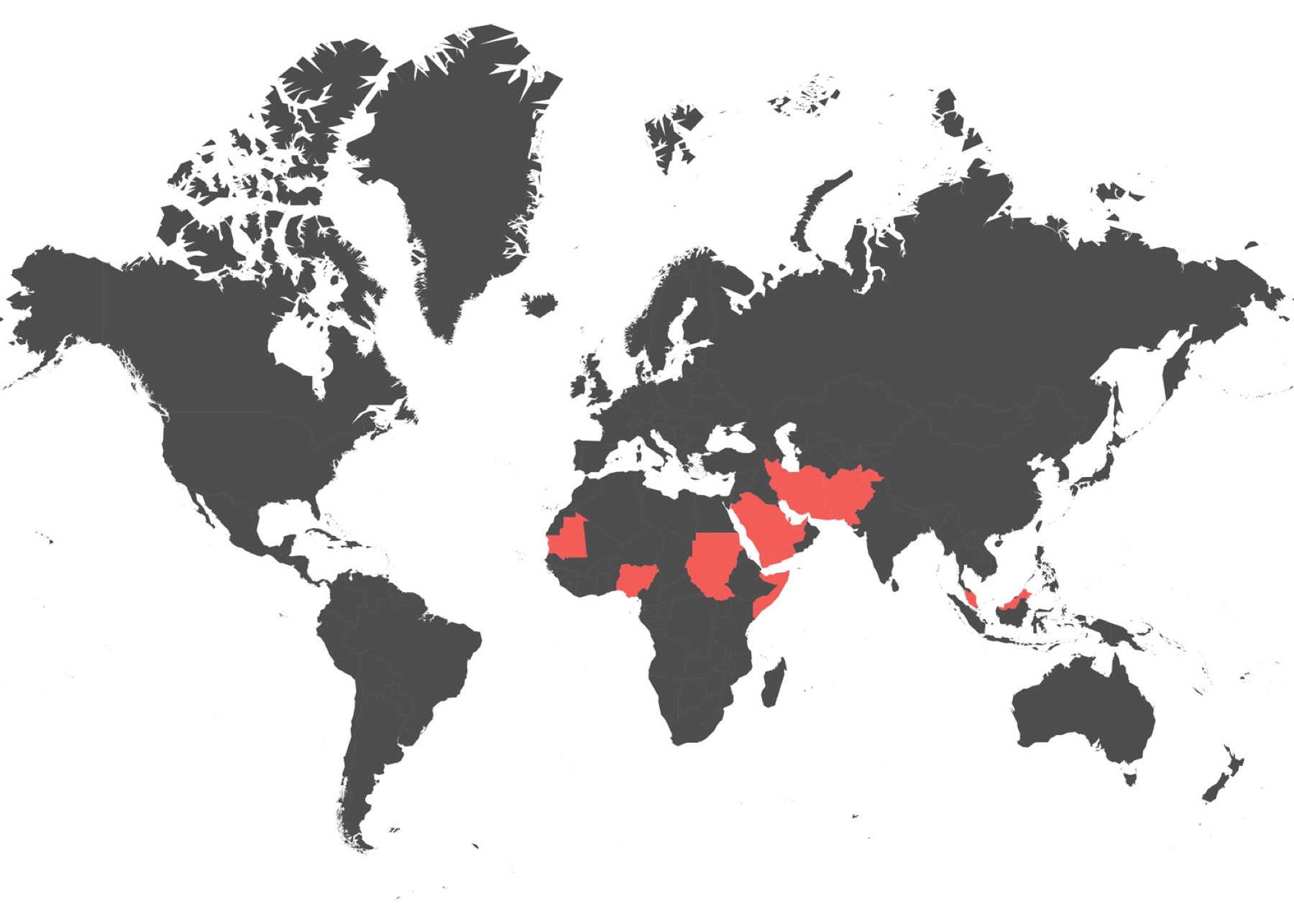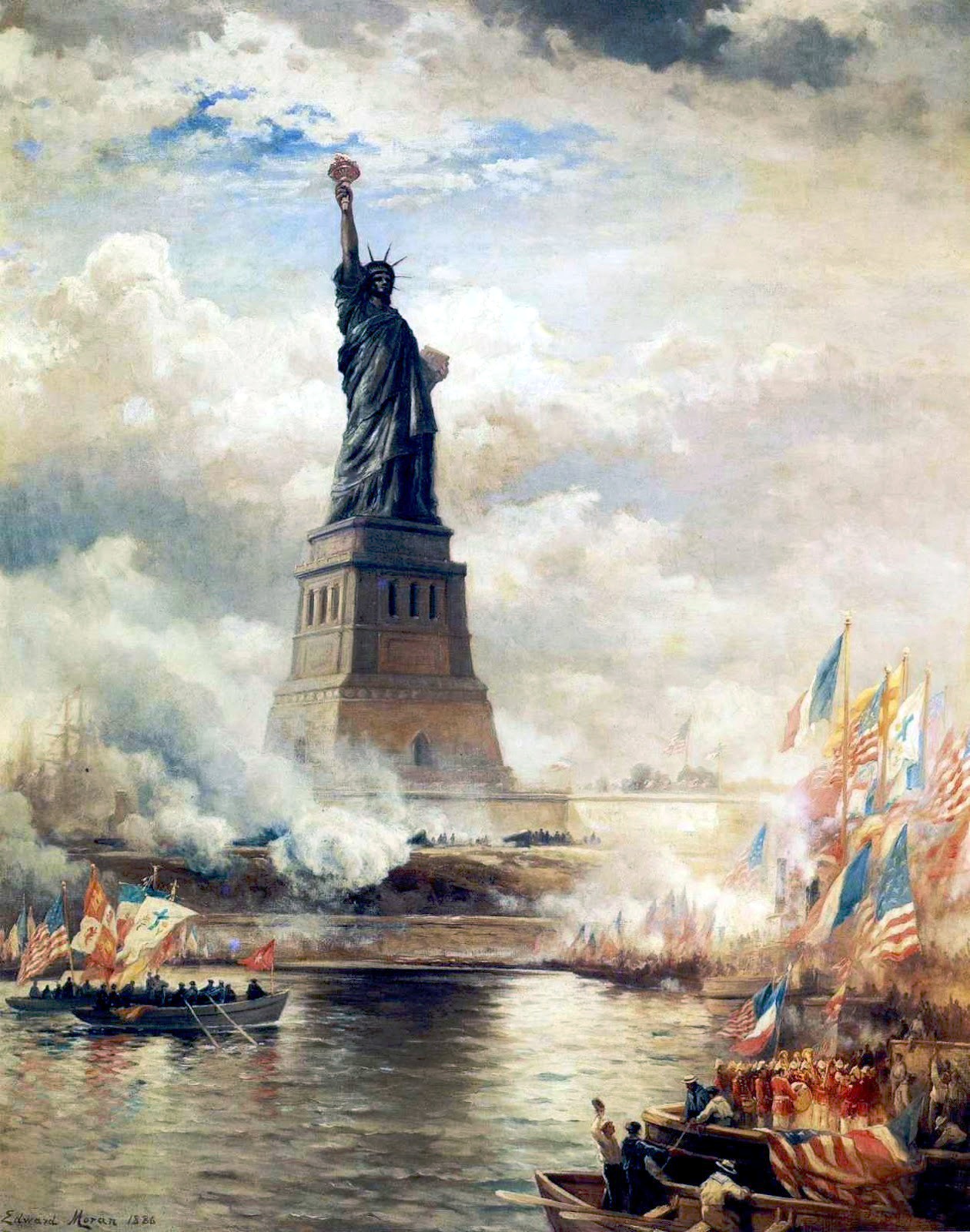 Good or bad the modern world owes much of its current shape and form to two anglophone nations — Britain and the United States. How and why this would be is the subject of new book Inventing Freedom: How the English-Speaking Peoples Made the Modern World by Daniel Hannan. His case is summarized below in an excerpted essay.
Good or bad the modern world owes much of its current shape and form to two anglophone nations — Britain and the United States. How and why this would be is the subject of new book Inventing Freedom: How the English-Speaking Peoples Made the Modern World by Daniel Hannan. His case is summarized below in an excerpted essay.
From the WSJ:
Asked, early in his presidency, whether he believed in American exceptionalism, Barack Obama gave a telling reply. “I believe in American exceptionalism, just as I suspect the Brits believe in British exceptionalism and the Greeks believe in Greek exceptionalism.”
The first part of that answer is fascinating (we’ll come back to the Greeks in a bit). Most Brits do indeed believe in British exceptionalism. But here’s the thing: They define it in almost exactly the same way that Americans do. British exceptionalism, like its American cousin, has traditionally been held to reside in a series of values and institutions: personal liberty, free contract, jury trials, uncensored newspapers, regular elections, habeas corpus, open competition, secure property, religious pluralism.
The conceit of our era is to assume that these ideals are somehow the natural condition of an advanced society—that all nations will get around to them once they become rich enough and educated enough. In fact, these ideals were developed overwhelmingly in the language in which you are reading these words. You don’t have to go back very far to find a time when freedom under the law was more or less confined to the Anglosphere: the community of English-speaking democracies.
In August 1941, when Franklin Delano Roosevelt and Winston Churchill met on the deck of HMS Prince of Wales off Newfoundland, no one believed that there was anything inevitable about the triumph of what the Nazis and Communists both called “decadent Anglo-Saxon capitalism.” They called it “decadent” for a reason. Across the Eurasian landmass, freedom and democracy had retreated before authoritarianism, then thought to be the coming force. Though a small number of European countries had had their parliamentary systems overthrown by invaders, many more had turned to autocracy on their own, without needing to be occupied: Austria, Bulgaria, Estonia, Germany, Greece, Hungary, Italy, Latvia, Lithuania, Poland, Portugal, Romania, Spain.
Churchill, of all people, knew that the affinity between the United States and the rest of the English-speaking world rested on more than a congruence of parliamentary systems, and he was determined to display that cultural affinity to maximum advantage when he met FDR.
It was a Sunday morning, and the British and American crewmen were paraded jointly on the decks of HMS Prince of Wales for a religious service. The prime minister was determined that “every detail be perfect,” and the readings and hymns were meticulously chosen. The sailors listened as a chaplain read from Joshua 1 in the language of the King James Bible, revered in both nations: “As I was with Moses, so I will be with thee: I will not fail thee, nor forsake thee. Be strong and of a good courage.”
The prime minister was delighted. “The same language, the same hymns and, more or less, the same ideals,” he enthused. The same ideals: That was no platitude. The world was in the middle of the second of the three great global confrontations of the 20th century, in which countries that elevated the individual over the state contended for mastery against countries that did the opposite. The list of nations that were on the right side in all three of those conflicts is a short one, but it includes the Anglophone democracies.
We often use the word “Western” as a shorthand for liberal-democratic values, but we’re really being polite. What we mean is countries that have adopted the Anglo-American system of government. The spread of “Western” values was, in truth, a series of military victories by the Anglosphere.
I realize that all this might seem strange to American readers. Am I not diluting the uniqueness of the U.S., the world’s only propositional state, by lumping it in with the rest of the Anglosphere? Wasn’t the republic founded in a violent rejection of the British Empire? Didn’t Paul Revere rouse a nation with his cry of “the British are coming”?
Actually, no. That would have been a remarkably odd thing to yell at a Massachusetts population that had never considered itself anything other than British (what the plucky Boston silversmith actually shouted was “The regulars are coming out!”). The American Founders were arguing not for the rejection but for the assertion of what they took to be their birthright as Englishmen. They were revolutionaries in the 18th-century sense of the word, whereby a revolution was understood to be a complete turn of the wheel: a setting upright of that which had been placed on its head.
Alexis de Tocqueville is widely quoted these days as a witness to American exceptionalism. Quoted, but evidently not so widely read, since at the very beginning of “Democracy in America,” he flags up what is to be his main argument, namely, that the New World allowed the national characteristics of Europe’s nations the freest possible expression. Just as French America exaggerated the autocracy and seigneurialism of Louis XIV’s France, and Spanish America the ramshackle obscurantism of Philip IV’s Spain, so English America (as he called it) exaggerated the localism, the libertarianism and the mercantilism of the mother country: “The American is the Englishman left to himself.”
What made the Anglosphere different? Foreign visitors through the centuries remarked on a number of peculiar characteristics: the profusion of nonstate organizations, clubs, charities and foundations; the cheerful materialism of the population; the strong county institutions, including locally chosen law officers and judges; the easy coexistence of different denominations (religious toleration wasn’t unique to the Anglosphere, but religious equality—that is, freedom for every sect to proselytize—was almost unknown in the rest of the world). They were struck by the weakness, in both law and custom, of the extended family, and by the converse emphasis on individualism. They wondered at the stubborn elevation of private property over raison d’état, of personal freedom over collective need.
Many of them, including Tocqueville and Montesquieu, connected the liberty that English-speakers took for granted to geography. Outside North America, most of the Anglosphere is an extended archipelago: Great Britain, Ireland, Australia, New Zealand, Hong Kong, Singapore, the more democratic Caribbean states. North America, although not literally isolated, was geopolitically more remote than any of them, “kindly separated by nature and a wide ocean,” as Jefferson put it in his 1801 inaugural address, “from the exterminating havoc [of Europe].”
Isolation meant that there was no need for a standing army in peacetime, which in turn meant that the government had no mechanism for internal repression. When rulers wanted something, usually revenue, they had to ask nicely, by summoning people’s representatives in an assembly. It is no coincidence that the world’s oldest parliaments—England, Iceland, the Faroes, the Isle of Man—are on islands.
Above all, liberty was tied up with something that foreign observers could only marvel at: the miracle of the common law. Laws weren’t written down in the abstract and then applied to particular disputes; they built up, like a coral reef, case by case. They came not from the state but from the people. The common law wasn’t a tool of government but an ally of liberty: It placed itself across the path of the Stuarts and George III; it ruled that the bonds of slavery disappeared the moment a man set foot on English soil.
There was a fashion for florid prose in the 18th century, but the second American president, John Adams, wasn’t exaggerating when he identified the Anglosphere’s beautiful, anomalous legal system—which today covers most English-speaking countries plus Israel, almost an honorary member of the club, alongside the Netherlands and the Nordic countries—as the ultimate guarantor of freedom: “The liberty, the unalienable, indefeasible rights of men, the honor and dignity of human nature… and the universal happiness of individuals, were never so skillfully and successfully consulted as in that most excellent monument of human art, the common law of England.”
Freedom under the law is a portable commodity, passed on through intellectual exchange rather than gene flow. Anyone can benefit from constitutional liberty simply by adopting the right institutions and the cultural assumptions that go with them. The Anglosphere is why Bermuda is not Haiti, why Singapore is not Indonesia, why Hong Kong is not China—and, for that matter, not Macau. As the distinguished Indian writer Madhav Das Nalapat, holder of the Unesco Peace Chair, puts it, the Anglosphere is defined not by racial affinity but “by the blood of the mind.”
At a time when most countries defined citizenship by ancestry, Britain was unusual in developing a civil rather than an ethnic nationality. The U.S., as so often, distilled and intensified a tendency that had been present in Great Britain, explicitly defining itself as a creedal polity: Anyone can become American simply by signing up to the values inherent in the Constitution.
There is, of course, a flip-side. If the U.S. abandons its political structures, it will lose its identity more thoroughly than states that define nationality by blood or territory. Power is shifting from the 50 states to Washington, D.C., from elected representatives to federal bureaucrats, from citizens to the government. As the U.S. moves toward European-style health care, day care, college education, carbon taxes, foreign policy and spending levels, so it becomes less prosperous, less confident and less free.
We sometimes talk of the English-speaking nations as having a culture of independence. But culture does not exist, numinously, alongside institutions; it is a product of institutions. People respond to incentives. Make enough people dependent on the state, and it won’t be long before Americans start behaving and voting like…well, like Greeks.
Which brings us back to Mr. Obama’s curiously qualified defense of American exceptionalism. Outside the Anglosphere, people have traditionally expected—indeed, demanded—far more state intervention. They look to the government to solve their problems, and when the government fails, they become petulant.
That is the point that much of Europe has reached now. Greeks, like many Europeans, spent decades increasing their consumption without increasing their production. They voted for politicians who promised to keep the good times going and rejected those who argued for fiscal restraint. Even now, as the calamity overwhelms them, they refuse to take responsibility for their own affairs by leaving the euro and running their own economy. It’s what happens when an electorate is systematically infantilized.
Read the entire article here.
Image: Keep Calm and Carry On. Courtesy of Wikipedia.

 The inflammatory rhetoric of the US election gives me pause. Pretenders to the nation’s highest office include xenophobes and racists. Yet their words of fear and hate are protected by one of the simplest and most powerful sentences written in to law:
The inflammatory rhetoric of the US election gives me pause. Pretenders to the nation’s highest office include xenophobes and racists. Yet their words of fear and hate are protected by one of the simplest and most powerful sentences written in to law:



 It should come as no surprise that those who deny the science of climate change and human-propelled impact on the environment would also shirk from purchasing products and services that are friendly to the environment.
It should come as no surprise that those who deny the science of climate change and human-propelled impact on the environment would also shirk from purchasing products and services that are friendly to the environment.
 Those of us who live relatively comfortable lives in the West are confronted with numerous and not insignificant stresses on a daily basis. There are the stresses of politics, parenting, work life balance, intolerance and financial, to name but a few.
Those of us who live relatively comfortable lives in the West are confronted with numerous and not insignificant stresses on a daily basis. There are the stresses of politics, parenting, work life balance, intolerance and financial, to name but a few. Associate professor of philosophy, Firmin DeBrabander, argues that guns have no place in a civil society. Guns hinder free speech and free assembly for those at either end of the barrel. Guns fragment our society and undermine the sense and mechanisms of community. He is right.
Associate professor of philosophy, Firmin DeBrabander, argues that guns have no place in a civil society. Guns hinder free speech and free assembly for those at either end of the barrel. Guns fragment our society and undermine the sense and mechanisms of community. He is right.